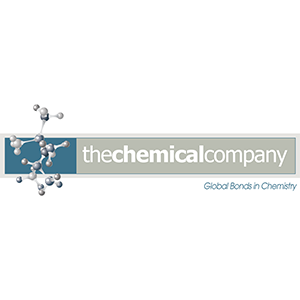Overview
The condition and influences of the oil market on a global scale continues to lead the news when discussing the chemical industry because of the tremendous impact that resonates throughout the leading economies when the oil market is unstable. The delicate balance between realistic prices, production, and consumption is more difficult to maintain than ever before. And the lack of accurate predictions is frustrating everyone from purchasing agents to consumers.
Another key chemical industry issue concerns the new legislation that is up for vote this week on the reformed Toxic Substances Control Act (TSCA) of 1976 introduced by Rep. John M. Shimkus (R-Il.). Although the bill could lead the way out of a huge political snarl that has lasted for years, everyone is not happy with the outcome. Some say it does not do enough. Read the opposing views.
Although the global chemical industry has grown significantly despite downturns in the overall economy, emerging economies drove a large share of those gains. The role of the industry in the marketplace also appears to be changing from the inventive blockbuster breakthroughs of the late 20th century to a more curative and corrective role targeting particular problems. To accommodate these changes in the marketplace, chemical companies are changing their focus and strategic thinking.
Read on, and see what the analysts, pundits, and market experts have to say as they weigh in on the important issues that are re-shaping the landscape of the chemical industry.
Baker Hughes: Cheap Shale Gas, Record U.S. Chemical Industry Growth, Natural-Gas Rig Count Down by 22
A Marketwatch article by market commodities reporter Myra P. Saefong said that industry support giant Baker Hughes reported that the number of U.S. rigs actively drilling for oil and natural gas as of April 24 fell 22 rigs to 932. The count is down 929 rigs from last year. The number of oilrigs fell 31 for the week to 703. June oil CLM5 was last at $57.27, down 47 cents or 0.7%, on the New York Mercantile Exchange.
ACC Welcomes U.S, House Draft Legislation to Reform TSCA
A press release written by Scott Jensen for the American Chemistry Council announced that ACC Vice President of Regulatory and Technical Affairs Mike Walls testified before the House Energy and Commerce Subcommittee on the Environment and the Economy in support of the bipartisan discussion draft of the “TSCA Modernization Act of 2015.” The draft seeks to modernize key aspects of our nation’s primary chemicals management law, the Toxic Substances Control Act (TSCA). It was released by Subcommittee Chairman John Shimkus in an effort supported by Committee Chairman Fred Upton and Committee Ranking Member Frank Pallone.
ACC stated that our nation’s primary chemicals management law must be updated to keep pace with scientific advancements and to ensure that chemical products are safe for intended use—while also encouraging innovation and protecting American jobs.
The Senate Environment and Public Works Committee will mark up the Udall/Vitter Toxic Substances Control Act reform bill and its potential amendments this week.
Draft Bill May Pave Path for Reform of Federal Chemical Control Law
A Chemical and Engineering News article by Britt E. Erickson concurs with the ACC in support of the new draft legislation in the House of Representatives that could lead the way out of a political snarl that for years has stalled Conogress’s efforts to modernized the federal law governing commercial chemicals. The chemical industry is backing the draft bill, and environmental groups say that with a few changes they too could support it.
Rep. John M. Shimkus (R-Ill.), who on April 7 unveiled the draft measure to reform the outdated Toxic Substances Control Act (TSCA), says, “I believe that this is the year we can finish the job.”
Shimkus’s draft bill omits controversial provisions—notably one that would override state chemical laws—found in Senate legislation (S. 697) to revise TSCA.
The American Chemistry Council and other chemical industry groups say the draft represents progress toward finding common ground on key issues in the long debate on TSCA reform.
Shimkus Bill Won’t Fix Big Flaws in Our Main Chemical Safety Law
According to Katie Weatherford in a Center for Effective Government article, the Shimkus Bill for TSCA reform does not even come close to addressing all of the necessary issues. Weatherford says that every day, we are exposed to chemicals in our shampoo, body wash, hand sanitizer, toothpaste, lotion, and much more. We expect our government to ensure that the chemicals in products have been tested and are safe for us and our families.
The truth is that the U.S. Environmental Protection Agency (EPA) has only tested about 250 of the 84,000 chemicals registered for use in the U.S. Of those, it has imposed restrictions on only nine.
This is due to significant shortcomings in our country’s main chemical control law, the Toxic Substances Control Act (TSCA) of 1976.
This law is vastly out of date and needs to be updated and strengthened to protect our families, friends, and communities from toxic chemicals. Legislators on both sides of the aisle agree, but they have far different approaches to revising the law.
2015 Chemical Trends
According to a Strategy& article titled Footprints & Competition, chemical companies can no longer afford to be passive about restructuring their business models or technological transformations.
The article goes on to say that Global sales of chemicals more than doubled over the last decade, hitting a record US$5.2 trillion by 2013 (americanchemistry.com). Emerging economies drove a large share of these gains, most notably in China, where chemicals sales expanded at an average compound annual rate of 26 percent over that period. Growth in basic chemicals, which make up nearly two-thirds of the industry, also benefited from the general uplift in oil and gas prices.
But at the same time, the chemicals industry is going through a tremendous period of change that will help define opportunities and challenges in both the short and the long term . . .
To succeed in this shifting landscape, chemicals companies need to focus their strategic thinking on three areas: (1) adapting and refining their business models and manufacturing footprints; (2) identifying growth opportunities in emerging markets — which, especially for Western companies, will require a new mind-set; and (3) harnessing the potential of digital technologies to capitalize on the next wave of value creation.






